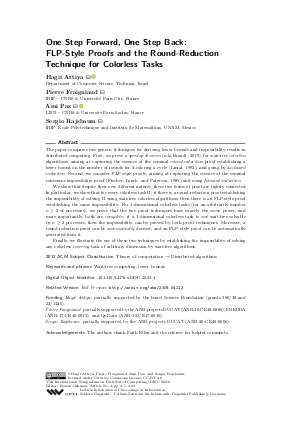LIPIcs.DISC.2023.4.pdf
- Filesize: 1.08 MB
- 23 pages

 Creative Commons Attribution 4.0 International license
Creative Commons Attribution 4.0 International license












Feedback for Dagstuhl Publishing